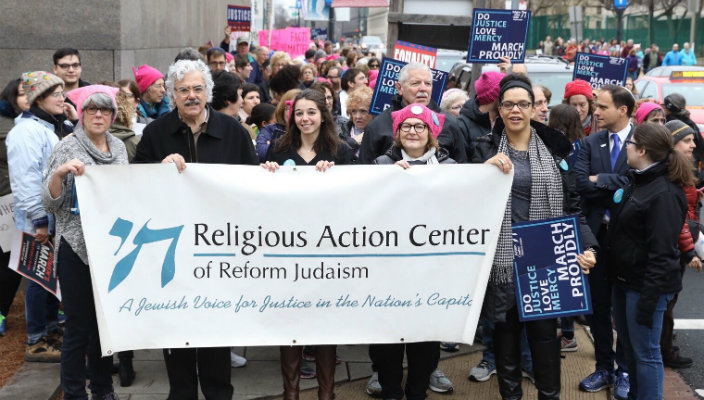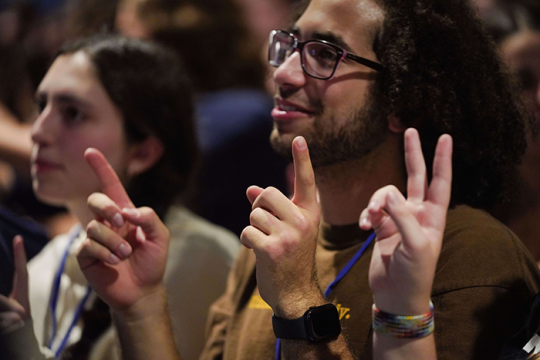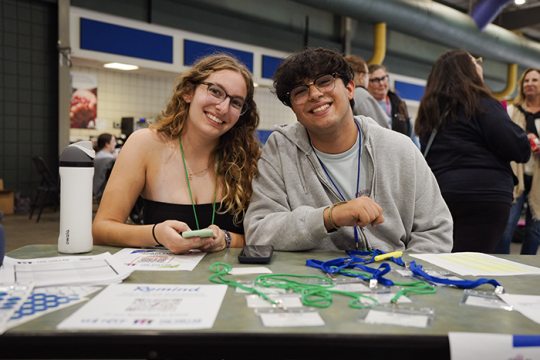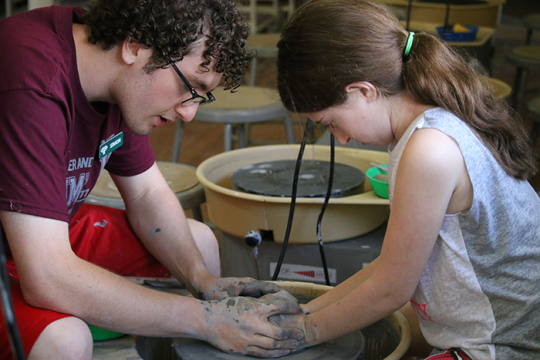
Nearly a month ago, I participated in the Women’s March on Washington, DC. On Friday night before the march, I davened at Temple Sinai with clergy from different denominations, beginning services with the song Olam Chesed Yibanei and its powerful refrain “And all this world is built from love,” which framed the entire weekend. The next morning, we joined with the RAC and more than 1,200 Reform Jews, including NFTY President Kathryn Fleisher and NFTY alumni from across the country. Kathryn reflected:
“The sea of pink hat-clad people stretched out seemingly endlessly before me. Every person in attendance was there because they cared deeply about a cause they felt was being threatened. But instead of being angry and vengeful, the crowd was full of love, support, and compassion. I couldn’t help but feel both more passionate about my own commitment to protecting women’s rights and to the issues that those around me were standing for".
For me, the march meant taking inspiration from Shabbat services, joining hands with my friends from NFTY, and marching past the White House in rejection of hate. It was not my first march on Washington. I marched against nuclear arms in the 70s, to support a woman's right to choose in the 80s, and for equality in the 90s. I marched again a month ago, to protect the advances we made and renew my efforts in ensuring equality, freedom, and dignity for all in our beautifully diverse country. As a Reform Jewish woman and Reform Jewish professional, I felt compelled to demonstrate that my voice counts.
Soon after embarking on this journey by foot, I realized the activism I was experiencing looked a lot different for those around me. To my left, I saw a group of moms carrying their children, holding signs that spoke of their commitment to a brighter future for their daughters and sons. To my right were black women, hand in hand with a white woman, chanting about respect for Americans of color. Behind me was a boisterous group of men, sporting shirts reading, “Real men are feminists.” In front of me were LGBTQ activists, decked out in rainbows, showing their support by bellowing the now-famous phrase, “Love is love is love.” The intensity of practicing my own activism while taking part in other people’s experiences brought tears to my eyes and fiery passion to my heart. I was reminded of the power of a united people and the strength of those who choose love instead of hate.
The Women’s March was not a finish line but rather a communal starting line. Though our motivations for attending were different, every attendee had the same intention: to do their part in making the world a more tolerant, accepting, and loving place. Whatever our differences, we had one important thing in common: we all made a choice to show up.
That step is also the first one we take in our work of youth engagement. By showing up with, and for, our teens, we tell them they are not alone in advocating for our collective future.
As Purim approaches next month, we celebrate, in part, Esther’s bravery. Despite her comfortable position of reigning over the land as queen and keeping the secret of her Jewish identity, she chose to stand up for justice and for her people. In opportunities like the Women’s March, and through our programs, we find ourselves in a position to speak up like Esther – not just for ourselves, but for our community. And in doing so, we inspire a rising generation of social justice champions.
I am looking forward to showing up in Chicago in just a couple of days, to connect and learn with those of you who will be at NFTY Convention and the Youth Summit. For those of you who can’t be there in person, join us on social media using #NFTYConvention and in the Tent all weekend for live updates.
Have something to say about this post? Join the conversation in The Tent, the social network for congregational leaders of the Reform Movement. You can also tweet us or tell us how you feel on Facebook.
Related Posts

Wisdom Across Generations: Leading for Tomorrow

9 Programs Empowering Jewish Teen Leaders
